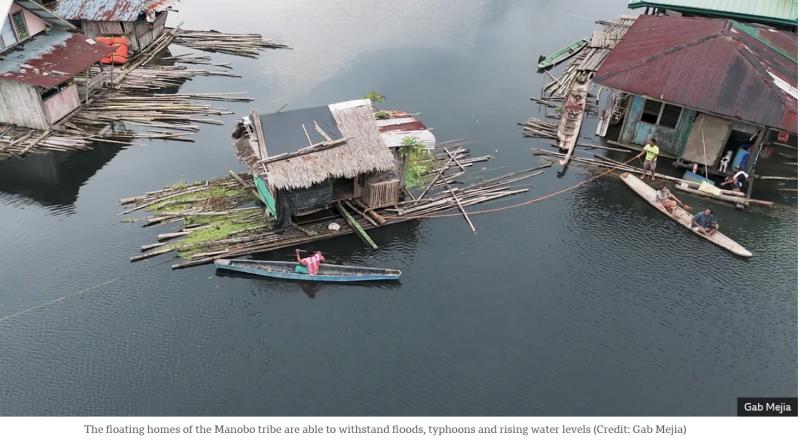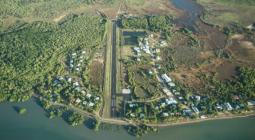Floating bamboo houses keep this indigenous tribe safe in a typhoon

The Manobo indigenous community in the Agusan Marshlands of the Philippines live in floating homes able to withstand floods, rising water levels and typhoons. Their way of life could have answers for how to adapt to climate threats.
In the Agusan Marshlands of the Philippines, climate change is disrupting the everyday lives of the local population. The flooding season is now all year round and the severity of storms and typhoons has severely increased. But the Manobo tribe have mastered life on the water. Their traditional bamboo homes float on the water and are resilient to typhoons, storms and flooding.
Built 60 years ago, these bamboo houses were designed to flow with the water and be highly adaptable to environmental changes in the marshlands. Today the Manobo tribe have to deal with change on a daily basis. The water level can vary as much as 10m (32.8ft) and is highly unpredictable as the flooding season has become erratic.
Marites Babanto, one of the leaders of the Manobo community, says the wetlands have shrunk in size during her lifetime. "My experience when I was child, the Agusan Marsh was still vast with so much water. When I got married, there was so much change because of climate change. The marsh is turning dry and the storms have gotten stronger and altered our environment," she says.
Another significant impact of climate change, which is very challenging to control, is the exponential growth of invasive water hyacinths, according to Sherrilyn Vasquez, the protected area superintendent of Agusan Marsh. "The impact has been severe to the community. It has been a blockage to the water days," she says. "Sometimes it's been difficult to travel by boat going there, and the communities themselves are struggling, especially the indigenous people. It affects their everyday fishing." The villagers are sometimes forced to relocate to a different part of the lake due to the encroachment. The community has adapted by dragging their floating houses to new locations, using ropes.
Datu Reyes, the tribal Manobo chieftain of Lake Panlabuhan in the Agusan Marshlands, agrees the explosion of water hyacinths is having a severe impact on daily life.
"They're destroying our fishing nets and we're trying our best to remove them," he says. Water hyacinths are a global environmental problem, clogging up waterways and rivers and causing widespread flooding, and they are difficult to eradicate.
The Manobo tribe are trying to preserve their way of life on the water despite the rapid changes in their environment. They consider themselves as guardians of the marsh, preserving their local environment for future generations. But their mission is becoming more and more challenging.
"We are experiencing the truth of climate change," says Reyes. "The land has become water and the water has become land."





